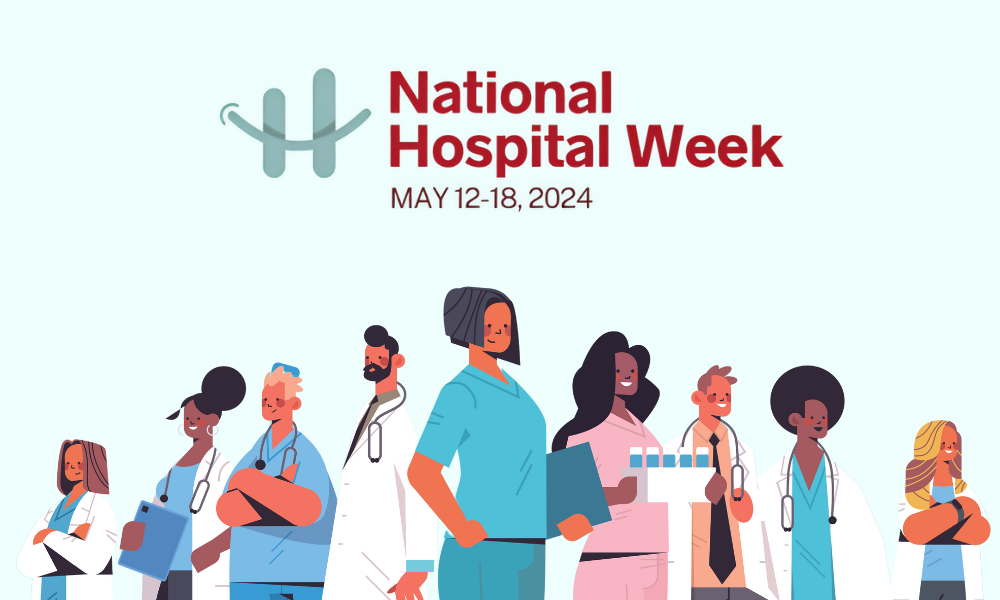Routine Care Must Continue In Crises. Locum Tenens Can Help
One of the big lessons of the COVID-19 pandemic and the lockdown of most US states is that hospitals and other healthcare facilities must continue day-to-day operations during healthcare crises. Hospitals and healthcare systems must be allowed to proceed with routine and elective care while preventing exposure to highly infectious diseases among generally “well” populations.
Why, you might ask? Because both healthcare system solvency and the wellness of millions of Americans depend on it.
Hospitals are Hurting
We are now realizing how badly the COVID-19 pandemic has damaged America’s healthcare industry financially. On June 22, Becker’s Hospital Review reported that, “At least 42 hospitals across the US have closed or entered bankruptcy this year, and the financial challenges caused by the COVID-19 pandemic may force more hospitals to do the same in coming months.”
Statistics like these help explain why.
- Emergency department (ED) volume fell by 49 percent during the first quarter of 2020, with urban facilities seeing the largest declines.
- Cancellation of elective procedures and other coronavirus-related concerns reduced the number of unique patients seeking hospital care by an average of 5 percent in March and April.
- Although surgeries account for just over a quarter of hospital admissions, they bring in almost half of hospital revenue. Cancelling surgeries reduces overall operating costs very little in light of the many fixed costs of being a surgical hospital.
- The American Hospital Association (AHA) estimates coronavirus-related financial losses will total $202.6 billion by the end of June, with hospitals losing an average $50.7 billion a month.
- Hospitals lost close to 27,000 jobs in May 2020, while 55 percent (51,300) of physician-office jobs lost in April (93,600) came back in May 2020.
Patients Delay and Die
Aside from financial and job loss, there’s the human cost. Some healthcare experts fear the death toll from delayed care could surpass total coronavirus-related deaths, which stand at more than 120,000 to date.
In a June 6 New York Times opinion piece, the chief executives of the Cleveland Clinic and the Mayo Clinic highlighted a 45-percent decrease in new cancer diagnoses, a 38-percent decline in reported heart attacks, and a 30-percent decrease in reported strokes across the country.
Drs. Tomislav Mihaljevic and Gianrico Farrugia noted that in-hospital mortality has declined, while non-COVID-19, out-of-hospital deaths have increased. Government shelter-in-place orders, fears of contracting the coronavirus, and job (and health insurance) loss have caused patients to stay home, the physician-executives said.
“Unfortunately, we’ve witnessed grievous outcomes as a result of these delays,” Mihalijevic and Farrugia said. To illustrate they cited a middle-aged patient who died of a bowel obstruction after waiting five days for emergency care, and a young woman who died of undiagnosed leukemia after delaying care for weeks. “Both deaths were preventable,” the physicians noted.
“Locums” Bridge Gaps
Locum tenens providers could help healthcare facilities offer the best of both worlds.
Employing locum tenens strategically could help healthcare providers minimize service disruptions while expanding emergency care capacity. Particularly if increased flexibility in physician licensing and credentialing introduced during the pandemic continues, healthcare staffing firms can deploy locum tenens providers and allied health professionals to staff sudden surges in demand in a matter of days.
Also, while hiring ‘expensive’ locum tenens providers might be the last thing healthcare facilities beleaguered by COVID-19 would consider in trying to recover, strategically hiring temporary–instead of permanent–providers could make sense. In its most recent blog post, Integrity Locums suggested a few ways.
- Hire locum tenens providers before recommitting to staff longer-term.
Many healthcare organizations are furloughing or laying off staff as a result of COVID-19. Reintroducing too many sidelined providers at once could boomerang amid the unpredictable spread and timing of the latest coronavirus. - Hire locum tenens providers to optimize flexibility.
Using temporary locum tenens providers can assure quality patient care without requiring long-term commitments. - Hire locum tenens providers to establish a ‘new normal.’
Healthcare organizations that survived COVID-19 must now adjust their staffing strategies. What’s your new normal? How many ‘permanent’ providers can you justify?
Strategically employing locum tenens providers while assessing patient volume and determining a longer-term staffing strategy could buy time and save costs in the end.
All News Is Locums
LocumTenens.com, SE Healthcare Team Up to Tackle Physician Burnout
On June 24, LocumTenens.com announced “a strategic partnership with SE Healthcare™ to offer a comprehensive, systems-based solution that confidentially measures the level of physician burnout within healthcare organizations. The solution pinpoints impacted areas and leverages specialized locum tenens staffing services to support clinicians who are suffering from stress, anxiety and burnout, which is now an even bigger issue given the COVID-19 pandemic,” according to the announcement.
The partnership, which links burnout-prevention software with locum tenens staffing, is unique to the healthcare industry. SE Healthcare’s “The Physician Burnout Prevention Program,” offered to healthcare organizations on a subscription-based, software-as-a service platform, includes a confidential survey and a 40-plus-video educational and training program to help confront and address physician burnout.
“LocumTenens.com offers innovative workforce solutions using locum tenens staffing that can be applied to more than 60 medical specialties” to prevent workload imbalance among an organization’s permanent staff, a top stressor associated with burnout.
“Now more than ever, anxiety, stress and burnout have reached a crisis level in healthcare,” LocumTenens.com President Chris Franklin said. “On the surface, it very clearly has an impact on every aspect of clinicians’ lives…and a tremendous effect on healthcare organizations and the patients they serve.” Franklin noted that by addressing burnout’s impact on clinicians, the two organizations also will help healthcare facilities offer higher quality care to patients.
According to the 2019 survey, Locum Tenens Engagements, conducted by LocumTenens.com, healthcare executives and administrators have begun to consider locum tenens a key part of longer-term staffing strategies. Rather than simply a way to fill gaps in staffing, they now view temporary clinicians as an option for balancing staff workloads and enabling greater flexibility in facility operations into the foreseeable future.
Online Doctor Network Buys Locum Tenens Firm
(Reprinted from Staffing Industry Analysts’ Daily News)
June 16–Longtime healthcare staffing executive Jeff Bowling has taken on the CEO role at Curative, the new brand name for locum tenens staffing firm THMED. The Dallas-based firm announced the appointment of Bowling and the name change today—along with its acquisition by Doximity, an online network of medical doctors and other healthcare professionals.
Doximity’s platform enables physicians to collaborate with other physicians, see career opportunities and get the latest medical news. “Most staffing firms have a database; we have access to a living, breathing network of physicians,” Bowling said in a statement. “I’m here because this is different, 100% unique in staffing.”
Curative notes that 70 percent of all doctors and 45 percent of all nurse practitioners and physician assistants are part of Doximity’s network.
Bowling (is) founder and former CEO of The Delta Cos., which rank(ed) as the tenth-largest locum tenens staffing firm in the US. How he fostered the company’s growth was among the staffing management stories featured in the book Breaking Through: Leadership Disciplines from Top Performing Staffing Firms by Barry Asin and Mike Cleland.
The firm Bowling is joining, Curative, was owned by Waveland NCP Texas Ventures, a partnership between New Capital Partners and Waveland Ventures. However, under the deal announced today, Waveland as well as John Martin, a founding investor in THMED, will continue to have an equity stake in Curative.
Under its former brand, Curative ranked on last year’s SIA list of largest locum tenens firms based on 2018 revenue.
The Healthcare Staffing Story
3 Keys to Healthcare Staffing in NYC During COVID-19
New York Health + Hospitals (NYC H+H) leaders attribute the system’s successful COVID-19 healthcare staffing strategy to communication, flexibility and technology, according to a Health Affairs abstract published on June 11.
By engaging healthcare staffing agencies; partnering with the US Department of Defense; and recruiting volunteers from across the country, the city’s public healthcare system rapidly staffed its 11 acute-care hospitals and three new field hospitals to meet the unprecedented patient-care demand created by COVID-19. NYC H+H redeployed staff to the areas of greatest need, redesigning recruiting, onboarding and training processes, and creating a new, centralized onboarding team to credential clinicians from outside the hospital system.
“Using new educational tools focused on COVID-19 content, (NYC H+H) trained 20,000 staff, including nearly 9,000 nurses, within a two-month period,” wrote lead author Chris Keeley, assistant vice president in the Office of Ambulatory Care. “Creation of multidisciplinary teams, frequent enterprise-wide communication, willingness to shift direction in response to changing needs, and innovative use of technology were the key factors that enabled the hospital system to meet its goals.”
Healthcare Staffing Outperforms Other Industry Segments
(Edited from Staffing Industry Analysts’ Daily News)
In April, healthcare staffing firms produced better revenue results than did other skill segments of the US staffing industry, according to Staffing Industry Analysts’ (SIA) May Pulse Survey.
“The May Pulse Survey measured revenue results for each of the four subsegments of healthcare staffing,” according to SIA’s June 9 announcement. While per diem nurse staffing indicated a six-percent, year-over-year decline, travel nurse firms reported median revenue growth of 10 percent, year over year, in April–most likely because of demand from COVID-19 hot spots and higher pay rates for such assignments. Locum tenens firms reported five-percent growth, while allied healthcare staffing firms reported flat, year-over-year revenue in April.
“While the May Pulse Survey sample size is not large enough to perfectly reflect the healthcare staffing industry, it does at least directionally suggest that healthcare staffing is doing better than industrial staffing (down 32 percent year over year), office/clerical staffing (down 25 percent) and IT staffing (down 4 percent),” SIA reported.
Regarding billing rates, “a net 60 percent of both travel nurse and per diem nurse staffing firms reported an increasing trend…over the past three months,” according to SIA. “This same metric was 39 percent for allied healthcare staffing firms and a negative 11 percent for locum tenens firms, potentially signaling some softness in bill rates for temporary physicians.”
Healthcare Recruiters Increase Recruiting Activity
June 22 — The Medicus Firm suggests the healthcare job market is leveling off, based on an increase in recruiting activity, along with fewer position closures.
The firm conducted two separate surveys of its 13,000-contact, proprietary database to learn how healthcare employers are recruiting providers in a job market impacted by COVID-19. Between April and May, 43 percent of healthcare employers recruited or increased recruiting, while the same number of open positions remained for 59 percent of those employers.
Medicus’ proprietary database represents physician groups, clinics, and hospitals and healthcare systems. The firm’s second survey asked the same questions as the first, plus two additional questions.
Other healthcare employer insights from the surveys:
- 22-percent increase in the number of employers conducting onsite interviews between Medicus’ first and second surveys.
- 43 percent of employers said they either hadn’t stopped, or had already increased, recruiting activities.
- 59 percent of employers indicated “no change” in the number of open positions over the 30-day period.
- Locum tenens utilization decreased by 22 percent in each of the survey periods. The number of organizations not using locum tenens providers increased by four percent between the two surveys.
- 56 percent of employers performing elective procedures saw at least half of their volume return between April and May.
- Hospitalist was the specialty declining most in demand over the survey periods.
“Physician needs increase as patient volumes ramp up rapidly for some healthcare organizations,” Medicus CEO Steve Look said. “Since COVID-19 the greatest demands continue to be in primary care, neurology and critical care/pulmonary positions.
A total of 449 responses were collected from the two surveys. The first survey ran from April 21 to April 27 with a total of 238 responses. The second ran from May 28 to June 4, with a total of 211 responses.








